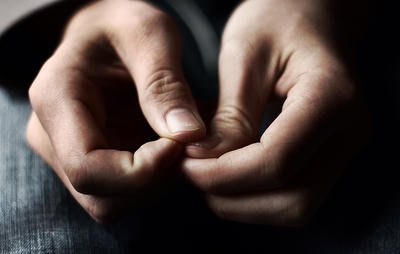When it comes to counselling, matters of mental health and faith are often considered mutually exclusive. Ismail Shaikh argues in favor of the adage ‘trust in God, but tie your camel’ with a compelling case study.
Is it time for us to reconcile our faith with mental health and psychology? The two are not necessarily mutually exclusive.
Take for example the case study of Hashim:
Hashim is a 25-year old single male who experienced severe bullying throughout middle school. Although it ceased in high school, it impact him severely enough that he found it challenging interacting healthily with peers his age. University was equally painful for Hashim. He opened his eyes each morning to immediately find his stomach churning. In lecture halls, he would often sit in the back, hoping no one saw him or spoke to him. He found his heart rate and breathing increase whenever a student looked towards him. The end of each weekday signalled relief.
To the dismay of his parents, Hashim decided to take a break from University. His anxiety was just too overwhelming.
It was during this time that he began learning about and practicing Islam. It wasn’t too long into his practice that he came across the concept of ikhlaas. However, knowing that ikhlaas meant doing good deeds sincerely for the sake of Allah alone had Hashim feeling horribly guilty and ashamed. He couldn’t reconcile this with how much he feared being judged or evaluated by people.
For instance, when Hashim tried attending the mosque, he felt quite anxious. When he was there, he avoided as much eye contact as possible. Sometimes he would intentionally arrive late so that he didn’t have to meet and greet anyone. After finishing his prayers, he would quickly walk to the back of the mosque and wait till the others had left before leaving the mosque himself. If he needed to make up missed rakahs, he found himself worrying about what others, who had finished their prayers, were thinking of him. His heart rate and breathing would increase. He would begin sweating profusely, and would suddenly forget what he was reciting or what rakah he was in.
Eventually, Hashim’s pain and inability to reconcile how he felt about people with his religion brought him to an Imam’s office. Hashim found the Imam’s advice – to prolong his prayers when he felt people were looking at him or judging him – extremely helpful. However, it did not cure his anxiety. All he could think of was finishing his prayer quickly and rushing home. The Imam also encouraged Hashim to seek out mental health counselling.
Acting upon this, Hashim met a Muslim Mental Health Counsellor and opened up about how he felt.
“It’s not like I want to think about other people. However, I just can’t help it. I feel extremely guilty and ashamed.”
In working with Hashim, the Counsellor understood that Hashim’s symptoms were similar to what many individuals who suffer from social anxiety or social phobia (SA/SP) experience. The Counsellor informed Hashim that according to the Social Anxiety Association, individuals with SA/SP often experience significant distress in the following situations:
* Being introduced to other people
* Being teased or criticized
* Being the center of attention
* Being watched or observed while doing something
* Having to say something in a formal, public situation
* Meeting people in authority (important people/authority figures)
* Feeling insecure and out of place in social situations (“I don’t know what to say.”)
* Embarrassing easily (e.g., blushing, shaking)
* Meeting other peoples’ eyes
* Swallowing, writing, talking, making phone calls if in public
The Counsellor explained to Hashim that his past experiences, namely the bullying he experienced, had shaped the way he viewed relationships with people. The Counsellor also informed him that a structured cognitive-behavioral treatment could help Hashim find relief and cure his anxiety God willing.
Knowing that his experience wasn’t novel and that there were treatments available to Hashim that were compatible with Islamic values, brought Hashim immediate relief.
How much help would Hashim have received if the intervention was purely religious? How guilty and ashamed would he have continued feeling, knowing that he lacked ikhlaas? Hashim’s issue was not his religion. It was his mental health.
Treatment for mental health cannot solely be religious.
Do we not eat food? Do we not work hard for our rizq? Do we not take medicine for our headaches?
Tawakkul in Allah is most certainly a must. But then tying the rope must follow. Imams and Counsellors must work together to help people maintain their faith in God but also encourage them to seek out mental health counselling for their issues. An increased awareness of mental health issues and an openness to try out interventions that are compatible with Islam is essential in order to help individuals like Hashim. By doing so, individuals like Hashim won’t misdiagnose or self-assess a psychological issue for a religious one.




